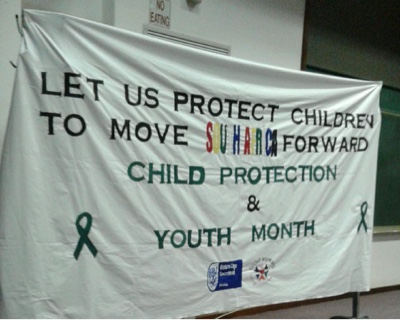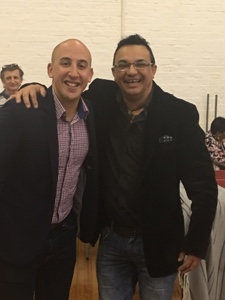Social work services should be flipped to be in line with their core purpose
Social workers have an educational role to play
Social workers, like teachers, are supposed to be spearheading social change? Social workers working closely with our schools have the ideal platform to intervene proactively by integrating their services into the daily programme of school life.
Let me explain where I am heading with this discussion by presenting a brief profile of the families and children who probably constitute 80% of a social worker's case load.
The sector that depends heavily on the support and intervention services of social workers is the poor, broken families. This group usually has multiple socio-economic and psychological problems that cause their lives to be unbearable. Because they do not have the knowledge nor the money to escape from this suffering, their future generations get stuck in this cycle as well.
If we want to help lift communities out of their poverty trap, the key driver is access to quality education. Research supports this view that educated folk have access to obtaining higher paid jobs which allow them to access all the trappings of a better standard of living in the long run. Besides the material benefits, people who are more educated, are more empowered. Being in this liberating state helps them to take control of their own lives.
We know this, yet the reality is that 80% of our world's population is drowning in poverty. And, the very people who need to be uplifted, are educationally-poor too. Most of our children have low literacy and numeracy levels, which are already a precursor to keep them locked in the vicious cycle of poverty. The only we are going to disrupt this cycle is to immerse our children in reading and writing extensively. If we follow this strategic process consistently and relentlessly, especially with our young children, we will have a breakthrough.
I believe that two social work interns at Sullivan Primary school understands this fundamental principle.
 |
| Lila, an undergraduate UCT student , chatting to Ernest |
Lila and Katlego, the undergraduate social work students, set up a reading centre at Sullivan
This push back strategy to lift learners' achievement, should be driven collaboratively by schools and social services. Again, allow me to illustrate this point by sharing the story of two Social work students from the University of Cape Town (UCT).
I met Lila, a third year UCT student at Sullivan Primary school today. Lila and her peer, Katlego, are based at Sullivan for the practical component of their course. Besides offering specific social work support to learners, the UCT students are also expected to partner with a community organisation at the school or initiate a community project at the school.
As part of their community project, Lila and her peer, Katlego, had decided to establish a reading centre at the school. Their vision was a huge project that required huge funding, time and commitment.
"When I thought about the reading centre, I had no idea what I had let myself in for. We had to go and find funding partners. That's when I approached Life Matters for advice and they connected us with the Shine Centre, " explained an animated Lila. "Then it all came together and we are ready to roll out the reading to the target group, Grade 2."
| One of the nooks in the Shine Centre |
Lila's passion is infectious. She explained how the reading centre is an effective strategy to help learners in a holistic way. Reading with them helps to build relationships, trust and helps to build learners's confidence and their problem-solving skills.
I commented that my experience of social workers is that they are supporters of the medical model where the interventions are always directed at the external factors rather than adopting this progressive and enabling model. I also highlight her courageous spirit to have tackled such a massive project.
"We are encouraged by our lecturers to explore different ways of offering social work support and our community project involvement is critical. We can decide whether we want to join an existing project or whether we want to initiate a project at the school. We chose to start our own project, the Shine .centre.
Really, we are allowed to think and act big, to take risks. And, we go for it because we know that we cannot fail. There are far too many people - our lecturers and our friends - who care about us and support us in what we have decided to do."
The UCT Social Work web page describes social work as:
"Social work is a dynamic profession that promotes social change, problem-solving in human relationships and empowerment and liberating people to enhance well-being".
Lila and Katlego are definitely rising to the challenge of being dynamic social activists by dealing with the underlying causes of our children's trauma. They themselves are creative problem solvers and enablers.
Lessons learned
I believe all social workers should follow this model based on its therapeutic and educationally sound principles of promoting learner academic performance. The medical model of providing social work services is too narrow and shortsighted to deal with the complex social issues,especially in our poor schools. Gone are the days where social workers could just play the role of counsellor or even worse, be a paper pusher!
Social workers should be at the forefront of social change.





hlo
ReplyDelete